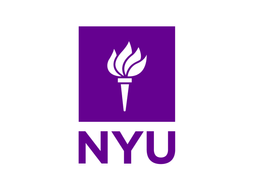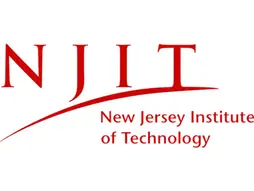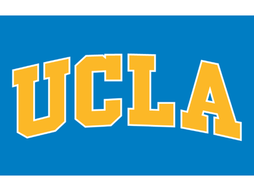Wake Forest University’s Summer Immersion — Our Review
Looking for an academic experience this summer? Have you been searching for a chance to stay on a college campus and study specialized courses on-site? In need of a shorter program than typical month-long institutes? If so, consider the Summer Immersion Program at Wake Forest University.
What is Wake Forest University’s Summer Immersion Program?
Summer programs are a great opportunity for high school students to gain research experience, work with university professors, and study specialized disciplines not comprehensively taught at the high school level. The Wake Forest Summer Immersion Program (SIP) checks all of these boxes, with wide-ranging fields of study from technology to the arts.
In this week-long program, students across all academic disciplines get the chance to experience campus life, stay at some of Wake Forest’s dorms, study with Wake Forest professors and students, and engage with professionals in their specialized areas of study.
Want to learn whether this program is right for you? This article will provide you with essential details to know before you apply, the fields of study you can pursue, which students are best-suited to SIP’s offerings, the program structure, and key facts about applying and attending the Summer Immersion Program.
What can I study at Wake Forest University’s Summer Immersion?
As a Summer Immersion Program student, you’ll enroll in a single Institute focused on one course of study. You’ll be spending most of your time with your Institute cohort, though you’ll have the chance to interact with other SIP students at some activities and programming.
The Summer Immersion Program currently offers 21 Institute choices in specialized academic topics. Though there is a wide selection to choose from, SIP Institute topics are largely clustered within broader subject areas.
To see if SIP Institute offerings fit your interests, here’s a breakdown of the general categories that SIP institutes fall into:
Biology: Bioscience, Neuroscience
Health & Medicine: Health and Exercise, Health and Wellbeing, Leadership, Medicine, Psychology, Sports Medicine
Arts: Filmmaking, Screenwriting, Writing for Life
Business: Business, Entrepreneurship, Finance and Investing, Sports Business
Engineering & Tech: Engineering, Virtual Reality, Technology
Politics & Law: Debate and Public Advocacy, Law, Policy and Politics
A unique feature of SIP is the diversity of offerings. Though Wake Forest does host institutes on widely popular topics (Entrepreneurship, Engineering, Technology, Medicine), others such as Sports Business and Medicine are far less common to find in high school summer programs. Of course, there is another side to consider — if your interests lie elsewhere, you may not be fulfilled by the Institute's offerings. If you’re hoping to pursue fields like history, language, literature, or social sciences, you’ll likely struggle to find your niche at SIP.
If you’re excited by these choices but torn between options, keep in mind that SIP permits applicants to express interest in multiple Institutes, though you will have to designate a top choice. The good thing is you’ll only submit one application even if you want to be considered for more than one program. And, don’t be concerned that marking several Institute choices will make you seem uncommitted or indecisive. Wake Forest directly states that there is no disadvantage to showing interest in a variety of Institutes — in fact, it is encouraged for students to pursue all directions that excite them.
Giving an array of choices is also strategic in boosting your chances of acceptance — the Summer Immersion Program has rolling admissions, so some Institutes may already be fully enrolled by the time you’re admitted. So, if your first pick is full by the time you’re admitted, you’ll be placed into one of your other choices. If there’s only one Institute that seems right for you, you might not be out of luck if it’s full — waitlist spots are available if you’re still committed.
Is Wake Forest University’s SIP Prestigious?
No, SIP is not prestigious owing to its paid nature, as well as its non-rigorous course curriculum as compared to institutes like RSI, SIMR, or the Hutton Junior Fisheries Program.
Am I a Good Fit for SIP?
Intrigued by one or more of these choices and wondering if you should attend. Before you apply, you’ll want to make sure that the curriculum and activities of your favorite Institute fit what you’re hoping to learn and do in the field.
Though all individual Institutes are under the purview of the Summer Immersion Program, each Institute has a unique structure and approach to their topic.
With that being said, some Institutes may have more engaging activities or unique lecture content than others. We’ve evaluated each Institute's offering, looking at their curriculum, daily schedule, and student activities, and determined that some choices are more promising to pursue, while some fall short in comparison.
1. Sports Medicine
An immediate plus of the Sports Medicine Institute is that high school-level education in the field is hard to come by. Though general medicine-focused institutes abound, digging into this sports-oriented specialty is often restricted to college-level work. In fact, even most colleges don’t include sports medicine in their curriculum! The topics covered are a comprehensive overview of key topics in sports medicine, from concussions to physical therapy to pediatrics to prosthetics. The hands-on activities offered allow you to actively practice the skills you’d need to work in the field. You’ll study surgical skills in a mock OR, learn how to make and apply splints and casts, practice suturing wounds, and even get the chance to engage in a cadaveric surgical anatomy lab — something rarely experienced until medical school.
2. Health and Exercise
Rationale: Similar to sports medicine, summer medical study is often oriented towards the traditional pre-med track, rarely dwelling on exercise sciences and health. You’ll cover the key subfields of cardiovascular health, PT, nutrition, and sports conditioning, and receive guidance on pursuing careers in health and exercise science, an added bonus to this uncommon opportunity. Activities will include actual practice of exercise science methods, getting to study and practice testing the function of heart rate and blood pressure, muscle and pulmonary functioning, and cardio-respiratory evaluation.
3. Law
Rationale: SIP’s Law Institute offers diverse educational opportunities in main legal practice areas such as litigation and judicial law, insight into the career including joining a first-year law school course and speaking with law students and practicing attorneys, and practicing negotiation skills and case study analysis with members of your Institute cohort. The broad scope of the Institute’s experiential learning makes it a strong choice for those hoping to learn essential legal concepts and explore what a future career in law would entail.
4. Technology, Virtual Reality
High school programs in technology, coding, and applications of computer science are some of the most popular and most common choices. In order to gain a competitive edge when applying to college as a student in computer science, it is more important than ever to have substantial competence in the field. Unfortunately, the depth of SIP’s tech-oriented Institutes will not help you achieve this knowledge. Both the Technology and Virtual Reality Institutes are primarily observational work — you’ll see technology in action, try out VR software, and speak with industry experts, but actual project work is both limited and fairly basic. If you’re looking to hone your skills and learn advanced techniques, this program may not be for you.
5. Health and Wellbeing
Though this Institute may appear to be scientifically oriented, it mainly involves physical activities and lectures on basic health topics – you’ll participate in fitness classes, hiking trips, and mindfulness workshops and attend lectures on topics like nutrition, emotional and sexual wellness, and health at every size. If you’re interested in the physical activity side of things, you may benefit more from attending a program explicitly directed towards hiking, camping, or physical training hosted by a fitness-focused organization. As the course content largely aligns with topics covered in typical high school health classes, this program may not be worth the cost.
6. Debate and Public Advocacy
Speech and Debate is one of the most popular extracurricular activities for high schoolers interested in politics, rhetoric, and research skills. Unfortunately, for those with a background in debate, you’ll likely be more than familiar with this Institute’s content. Mostly dwelling on basic skills in rhetoric, argumentation structure, and public speaking, developing your competence in these areas would be more effective through active participation and experience-building in competitive debate, rather than studying these concepts in the classroom. Though you will get the chance to debate your fellow students and discuss current political issues and controversies, participating in summer debate camps and institutes will be more effective in deepening your skills in structured debate events and building cases and arguments through independent work, and place you in a cohort well-populated with motivated students interested in advanced techniques that reach far beyond the Institute’s curriculum.
Key Facts
Location: Wake Forest University (Winston-Salem, North Carolina)
Program Dates: The exact dates of WIP attendance vary by Institute subject. SIP is split into six weeks of programming; each Institute will only be offered during one of the six weeks. Though exact dates vary, no matter which Institute you attend, you can expect to be on campus for one week in the range of mid-June to late July.
Eligibility: High school students from every grade are eligible to apply.
Application Dates: The application to Wake Forest’s SIP becomes available on November 1st for the upcoming summer program. There is no firm deadline to submit applications, as they are reviewed on a rolling basis. However, the program encourages students to apply as early as they are able since popular Institutes are often full by January.
Application Requirements: The Summer Immersion Program includes two essay questions, and also requires a recommendation from a teacher or a school counselor or administrator.
Cost: Depending on the Institute you attend, costs may vary. Though subject to change, the current program fees are $2,800 for non-STEM Institutes and $3,000 for STEM Institutes. If the cost is a barrier for you, Wake Forest does offer need-based financial aid scholarships to admitted students. However, these scholarships are on a first-come first-serve basis, so it is strongly recommended to apply early.
Selectivity: Wake Forest University does not provide statistics on SIP acceptance rates. However, as the application does not require submission of school transcripts, the evaluation will largely focus on the strength of your essays and recommendation, as well as available spots in your chosen Institute(s).
Requesting information: Interested in keeping up-to-date on SIP Institute choices, dates, or speaking with a program administrator? As program offerings and details may vary from year to year, you can subscribe to SIP’s email distribution list to get the latest updates or ask any questions you might have before applying or enrolling.
Pros & Cons of SIP
To offer a final analysis of whether Wake Forest’s Summer Immersion Program might fit your goals, we’ve broken down the essential pros and cons to keep in mind:
Pros
You’ll stand an advantage as a Wake Forest applicant: As Wake Forest notes that SIP participation is considered formal demonstrated interest, you’ll get on their radar early if you’re interested in applying.
You’ll find niche academic opportunities: Though many popular summer program topics are covered at SIP, you may not find programs such as Sports Medicine and Business, Neuroscience, or Health and Exercise Science elsewhere. So, if you’re hoping to pursue further study in these fields, it may be worth taking advantage of the opportunity SIP offers.
Cons
The program length is quite limited: Though you may be passionate about an Institute offering, the week-long structure of the program limits your ability to get in-depth exposure to the field. However, if you can’t accommodate the month-long commitment of many summer programs, SIP can help you gain exposure to the field in a shorter time frame.
SIP does not offer too many hands-on activities: With the exceptions of our top recommendations, the activities provided by many Institutes only allow for limited student participation. Rather than participating in experiments or projects yourself, you’ll mainly observe experienced researchers or professionals in action and tour labs or facilities connected to your Institute subject.
It comes with a high cost: Despite only lasting a week, SIP has very high tuition fees — typically $2,800, and $3,000 for STEM-focused Institutes. These costs approach common expenses of month-long programs, which may make SIP a less appealing option.
Should You Consider Applying?
In terms of overall fit for SIP, the program seems most suited for high school underclassmen. As much of the covered material focuses on key introductory topics in the field, more advanced and experienced students will likely benefit more from summer experiences that dive deeper into their academic interests, as they may already be familiar with the Institute curriculum.
The program is also not prestigious, and will not have that much of an impact on your resume or personal statement while applying to college. You could consider working on a passion project on the side or using the knowledge gained as your time as an SIP participant to further independent research.
One other option—the Lumiere Research Scholar Program
If you’re interested in pursuing independent research, consider applying to one of the Lumiere Research Scholar Programs, selective online high school programs for students founded with researchers at Harvard and Oxford. Last year, we had over 4,000 students apply for 500 spots in the program! You can find the application form here.
Also check out the Lumiere Research Inclusion Foundation, a non-profit research program for talented, low-income students. Last year, we had 150 students on full need-based financial aid!
Stephen is one of the founders of Lumiere and a Harvard College graduate. He founded Lumiere as a Ph.D. student at Harvard Business School. Lumiere is a selective research program where students work 1-1 with a research mentor to develop an independent research paper.
Image Source: WFU logo











